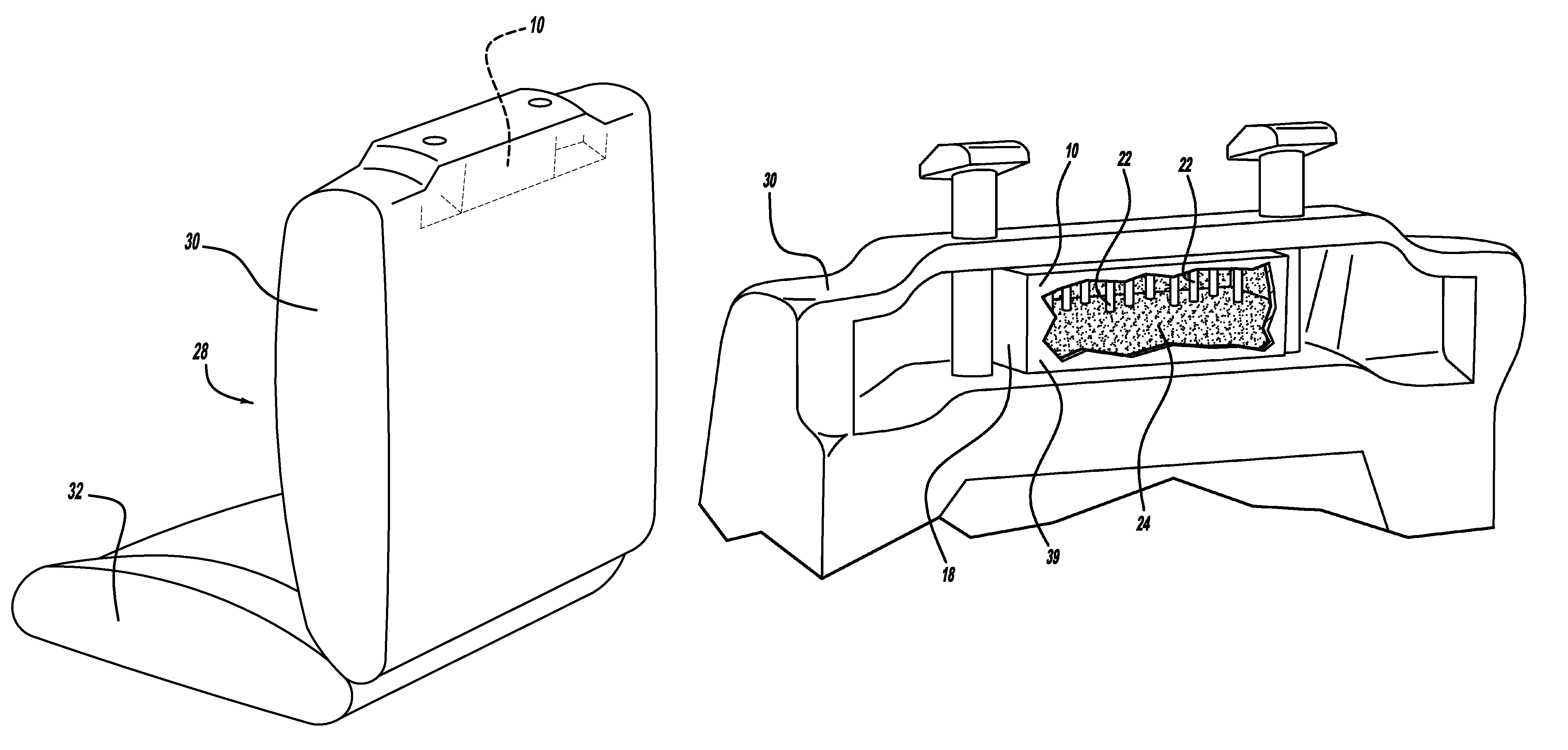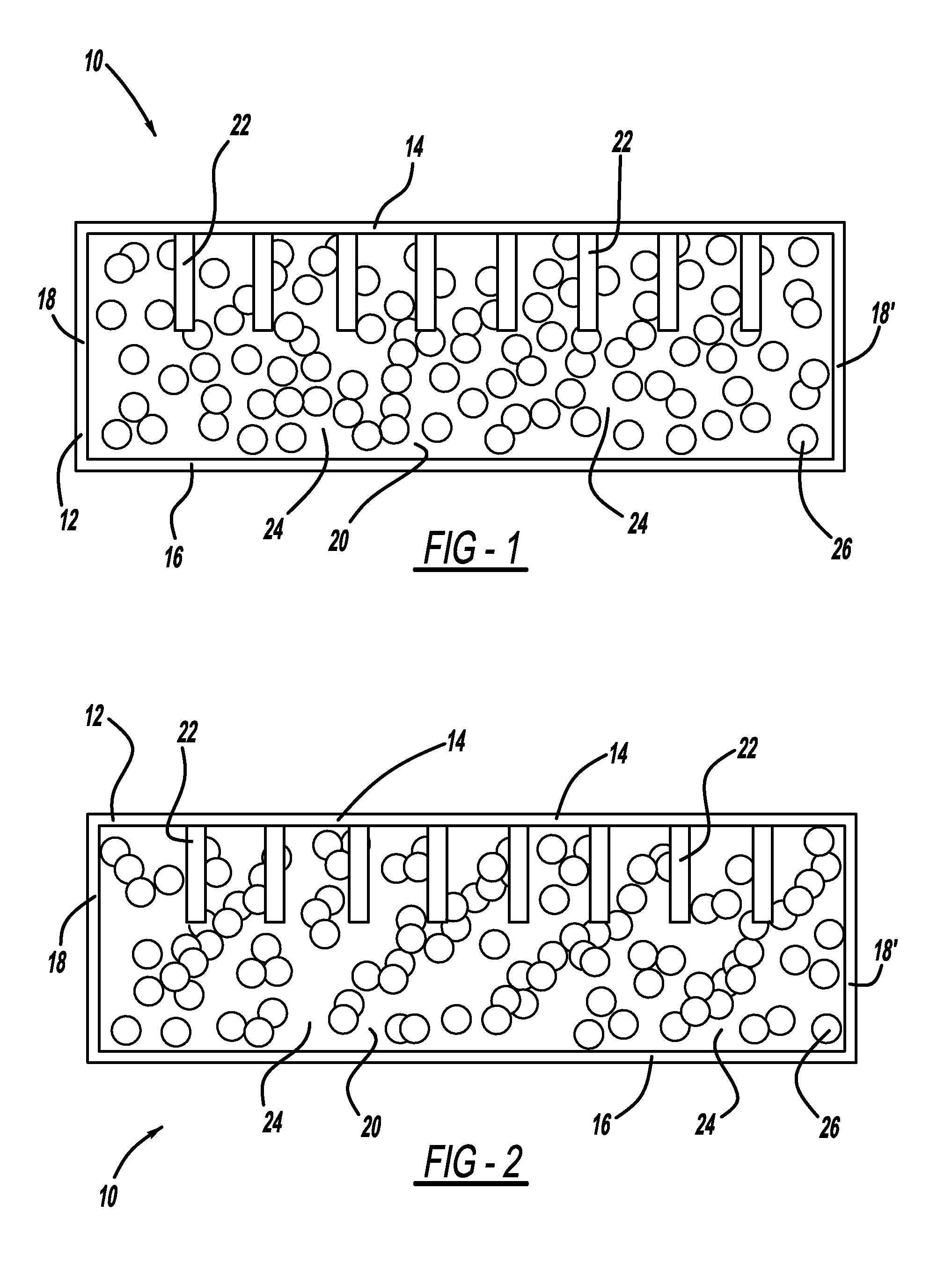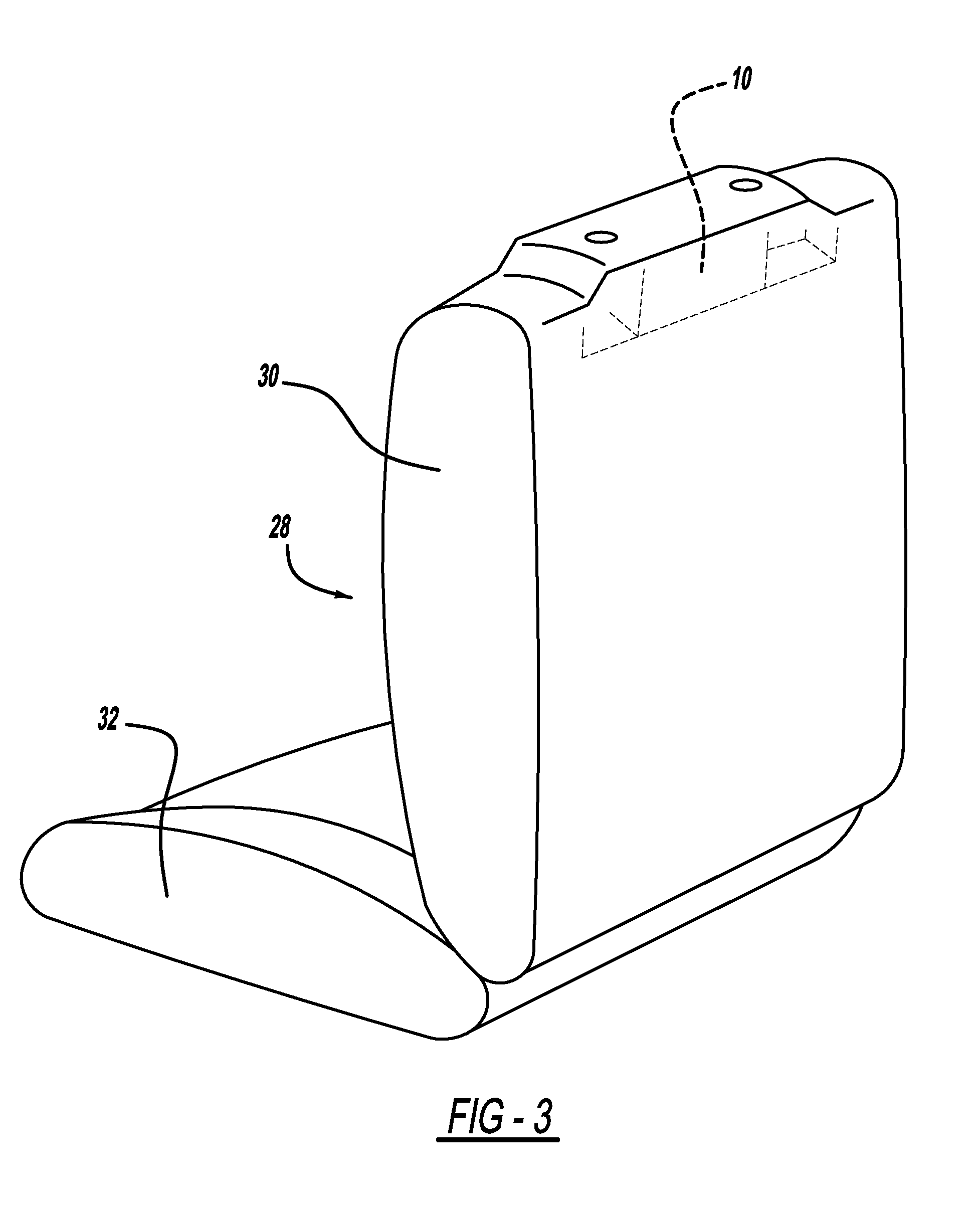Non-newtonian stress thickening fluid vibration damper system for vehicle seat
a vibration damper and fluid technology, applied in the direction of chairs, pedestrian/occupant safety arrangements, vehicular safety arrangments, etc., can solve the problems of vehicle vibration transmission to the vehicle seat, one of the most difficult to achieve, and the challenge of vehicle designers today, so as to reduce or eliminate the vibration in the vehicle seat, and the effect of dampening the motion
- Summary
- Abstract
- Description
- Claims
- Application Information
AI Technical Summary
Benefits of technology
Problems solved by technology
Method used
Image
Examples
Embodiment Construction
[0022]In the following figures, the same reference numerals will be used to refer to the same components. In the following description, various operating parameters and components are described for different constructed embodiments. These specific parameters and components are included as examples and are not meant to be limiting.
[0023]Referring to FIGS. 1 and 2, a diagrammatic sectional view of an enclosure, generally illustrated as 10, is shown. The illustrated shape and size of the enclosure 10 is suggestive and is not intended as being limiting as other shapes and sizes may be suitable for the purpose. The enclosure 10 includes a housing 12. The housing 12 may be composed of a variety of materials such as plastic or metal and may be produced by a variety of known processes, including but not limited to injection molding, die casting, and stamping.
[0024]The housing 12 is preferably comprised of a top wall 14, a bottom wall 16, a pair of opposed side walls 18 and 18′, and a back w...
PUM
 Login to View More
Login to View More Abstract
Description
Claims
Application Information
 Login to View More
Login to View More - R&D
- Intellectual Property
- Life Sciences
- Materials
- Tech Scout
- Unparalleled Data Quality
- Higher Quality Content
- 60% Fewer Hallucinations
Browse by: Latest US Patents, China's latest patents, Technical Efficacy Thesaurus, Application Domain, Technology Topic, Popular Technical Reports.
© 2025 PatSnap. All rights reserved.Legal|Privacy policy|Modern Slavery Act Transparency Statement|Sitemap|About US| Contact US: help@patsnap.com



